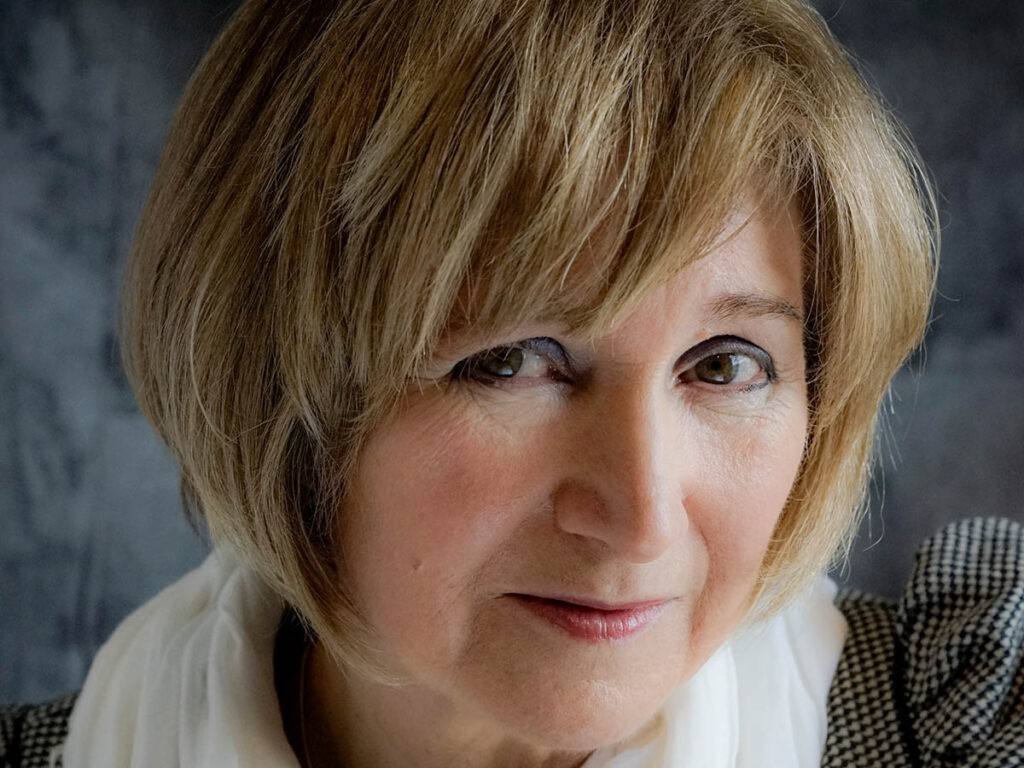Algarve writer Lídia Jorge is the winner of the 19th edition of the Eduardo Lourenço Prize, the Center for Iberian Studies (CEI) announced yesterday.
«The jury, unanimously, decided that the Eduardo Lourenço Prize in 2023 will be awarded to the writer Lídia Jorge», revealed Sérgio Costa, president of the Municipal Council of Guarda and member of the CEI board.
The mayor highlighted that this gives «a greater dimension to the Eduardo Lourenço Award, which no longer only applies to Iberia, but also to Ibero-America, taking into account its presence in those latitudes».
The vice-rector of the University of Coimbra Delfim Leão highlighted that, taking into account that «the Eduardo Lourenço Prize has been predominantly male until now, the award given to Lídia Jorge is still interesting. It reinforces the female presence in the range of award winners, she who is precisely one of the heralds par excellence of this visibility of female voices through her work ».
The vice-rector of the University of Salamanca José Mateos Roco highlighted that «it was a very thought out, very considered decision, all points of view were valued, but the figure of the winner was the one who best met the conditions for this year to be the winner, especially in this new dimension intended for the prize”.
Aimed at rewarding personalities or institutions with relevant intervention in the field of Iberian culture, citizenship and cooperation, the Eduardo Lourenço 2023 Prize, worth 7.500 euros, was awarded by a jury made up of members of the management of the Center for Iberian Studies (president of the Chamber Municipal da Guarda, rector of the University of Coimbra and rector of the University of Salamanca), members of the Scientific and Executive Committees of the CEI and the following invited personalities: Maria de Lurdes Fernandes and José Augusto Cardoso Bernardes, nominated by the University of Coimbra, and María Ramona Domínguez Sanjurjo and Francisco Gómez Bueno, nominated by the University of Salamanca.
Lídia Jorge made her debut with the publication of “O Dia dos Prodígios” in 1980. Since then she has published novels, short stories, essays, plays, chronicles and poetry. Her narratives have been adapted for theater, television and cinema.
Among his books, titles such as “A Costa dos Murmúrios”, “O Vale da Paixão”, “O Vento Whistling in the Cranes”, “The Memorables”, “Estuário” stand out.
Widely translated and published abroad, Lídia Jorge has been distinguished several times, namely with the Correntes d'Escritas Prize, in 2004, the Albatros Prize, from the Günter Grass Foundation, in 2006, the Vergílio Ferreira Prize, from the University of Évora, in 2015 , and the FIL Prize for Literature in Romance Languages, at the Guadalajara Book Fair, in Mexico, in 2020.
This year, Lídia Jorge won the Grand Prize for Romance and Soap Opera from the Portuguese Writers Association with “Misericordia”, a work with which she is nominated for the Medicis and Femina 2023 awards for best foreign novel published in France.
“Misericordia” won the Prize for Best Lusophone Book published in France, attributed by the editors of the literary magazine Transfuge,
In 2019, the writer was a finalist for the Médicis Prize with the novel “Estuário”.
Last April, Lídia Jorge was distinguished with the APE Literary Life Prize, after, in 2022, having won the APE Grand Prize for Literary Chronicles and Dispersos with “Em Todos os Sentidos”. In 2002, “O Vento Assobiando nas Gruas” won him the APE Grand Prize for Novel and Novel.
The award named after the essayist Eduardo Lourenço, mentor and honorary director of the CEI, who died in Lisbon, on December 01, 2020, at the age of 97, has already distinguished several personalities, of Iberian and Ibero-American origin, whose careers spanned distinguished themselves in various fields of arts, letters and sciences.
They have already received the award: Maria Helena da Rocha Pereira, professor of Greco-Latin Culture (2004), Agustín Remesal, journalist (2006), Maria João Pires, pianist (2007), Ángel Campos Pámpano, poet (2008), Jorge Figueiredo Dias , full professor of Criminal Law (2009), César António Molina, writer (2010), Mia Couto, Mozambican writer (2011), José María Martín Patino, theologian (2012), Jerónimo Pizarro, professor and researcher at the University of the Andes, in Colombia (2013), Antonio Sáez Delgado, professor and researcher (2014), Agustina Bessa-Luís, writer (2015), Luis Sepúlveda, Chilean writer (2016), Fernando Paulouro das Neves, writer and journalist (2017), Basilio Lousada Castro , writer (2018), Carlos Reis, professor and researcher (2019), Ángel Marcos de Dios, retired professor at the University of Salamanca (2020), José Saramago Foundation (2021) and geographer Valentín Cabero Diéguez, also retired professor at the University of Salamanca (2022).


















Comments